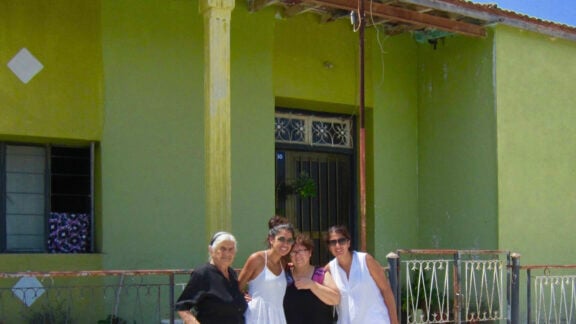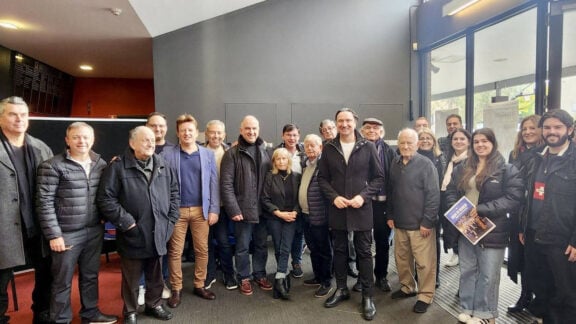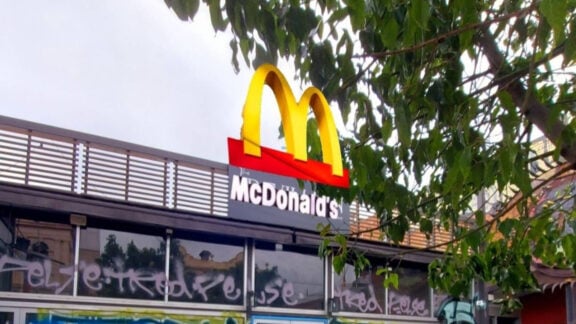I noted with interest the speech of the Cyprus Ambassador to Greece at The Athens of World Hellenic Interparliamentary Association which contained a message of optimism and a message of values and principals. For me these are important messages. But they are the messages of an Ambassador and not a politician. My own analysis of the current geopolitical circumstances surrounding Cyprus is that Cyprus has some opportunities but also enormous problems. In short I believe that Cyprus is in trouble and needs, more than ever, help from us, from the major powers and from the EU.
I cannot however say that this help is being provided or will be provided at the level required.
This is because Cyprus faces a formidable and determined opponent in President Erdogan of Turkey who is in many respects feared by both East and West. So confident is Erdogan that the EU, the Americans and even the Russians will play lip service to Cyprus genuine concerns but do very little to punish or curtail Turkey.
Refugee crisis
I want to talk about three ways in which Turkey is applying pressure on Cyprus. Let me begin with the increasingly difficult problem of the Refugees currently swamping Cyprus. According to the European Asylum support Service (EASO) asylum claims in Cyprus rose by 69 per cent between 2017 and 2018 while applications to the EU overall in the same period dropped by 10 per cent. Cyprus is now number one in terms of top receiving countries on a per capita basis. 4,600 applied in 2017 and 7,765 in 2018.
The EU placed a lot of faith in Turkey and a lot of money, 3 billion euros in fact, to help it stop the flow of Syrian refugees to Europe.
But this has not stopped Turkey from offloading many of these refugees to Northern Cyprus. Inevitably they make their way to the South where they claim refugee status. Cyprus has complained to the EU but it has mostly fallen on deaf ears as the EU is thoroughly invested in terms of strategy and Euros to the Turkish-European agreement for stopping refugees entering the EU.
Another example of increasing Turkish pressure on Cyprus can be seen in its drilling in Cyprus Exclusive Economic Zone or EEZ despite the Cyprus governments complaints that the drilling is illegal.
READ MORE: Five countries in the eastern Mediterranean are shaking up Europe’s energy map
Drilling violations
The Fatih Turkish drillship anchored just 60km offshore from Paphos, my home province and carried out exploratory drilling. The EU issued a mild censure to Turkey but stopped short of sanctions or other actions to punish Turkey. This is because there are member states that do not want to upset Turkey especially with the threat that Turkey may not curtail refugees into Europe.
Turkey’s response to the measured comments of the EU, the Americans and the Russians was to schedule another ship the Yavuz to a location off the Karpas coast to carry out more drilling.
I don’t think that Cyprus strategic allies in the EU want to jeopardise their relations with Turkey and this is also true of the other big powers when it comes to Turkey’s actions in the Cypriot EEZ.
The standard line of these allies is a call for negotiation to solve any differences.
Islamisation process
Most recently some elements within Turkey have begun suggesting that the entire fenced off area of Varosha belonged to the Turkish Cypriot Islamic Organisation (EVKAF) and the Turkish Cypriot North has suggested that it would bring in experts to study the buildings, the land register and environmental risks of inaction with a view to developing a Turkish construction plan going forward.
These three examples: flooding the South with refugees, drilling in the Cypriot EEZ and threatening to annex Varosha are examples of the strategy adopted by Ankara to pressure Cyprus.
In my view this pressure has one aim. It is to weaken Cypriot resolve for a settlement involving the reunification of Cyprus under a bizonal bicommunal framework.
READ MORE: Cyprus: dangerous row over gas exploration dates back to British colonial meddling
Some in Cyprus including in the Government have begun thinking about the unthinkable. A two state solution. The use of such words as a “loose Federation” or a “decentralised federation” or a “co-federation” are music to those in Turkey who ultimately want a two state solution. For them the strategy is to establish Northern Cyprus as an internationally recognised Turkish State. They know this process of applying pressure is breaking down Greek Cypriot resolve while a parallel process of Islamisation and increased Turkish settlement is breaking down Turkish Cypriot desire to have a united Cyprus by changing the character of the North.
To those in Cyprus who are attracted by the two state solution I say this.
Whatever concessions may be gained in terms of territory in exchange for accepting such an idea is a small price for Turkey to pay to establish another State, within the EU that will vote for its interests and veto any actions that threaten them.
This is why I think that Cyprus faces dangerous times and that it needs help. But before it can get that help it must show the world that it has a genuine desire to reach a fair solution. After a recent letter from President Anastasiadis to the UN Secretary General was leaked government spokesperson Prodromos Prodromiou issued a statement that the President had set no conditions for the resumption of talks. This is a welcome change from the previous stance of no talks until Turkey agrees to removing its troops and giving up its guarantor status – which it was never going to do in advance of talks. This offer of no conditions was however spoilt by Prodromou then suggesting a condition that the Turkish side should stop drilling before new talks commenced.
The world is now watching Cyprus and much of the world wants to support it. But simply saying the Turks are being obstructionist will not sway the argument. The world wants Cyprus to commit to talks without preconditions and within a reaffirmation of the UN supported bizonal bicommunal framework.
It is a delicate time for Cyprus diplomacy and only by honestly recognising the magnitude of the problems and getting past the mindset of denial that many Cypriots have fallen into can Cyprus hope to develop a cohesive strategy to reunite the island.
* Speech given by Theo Theophanous, former member of parliament in the state of Victoria, at the meeting in Athens of World Hellenic Interparliamentary Association in July 2019.









